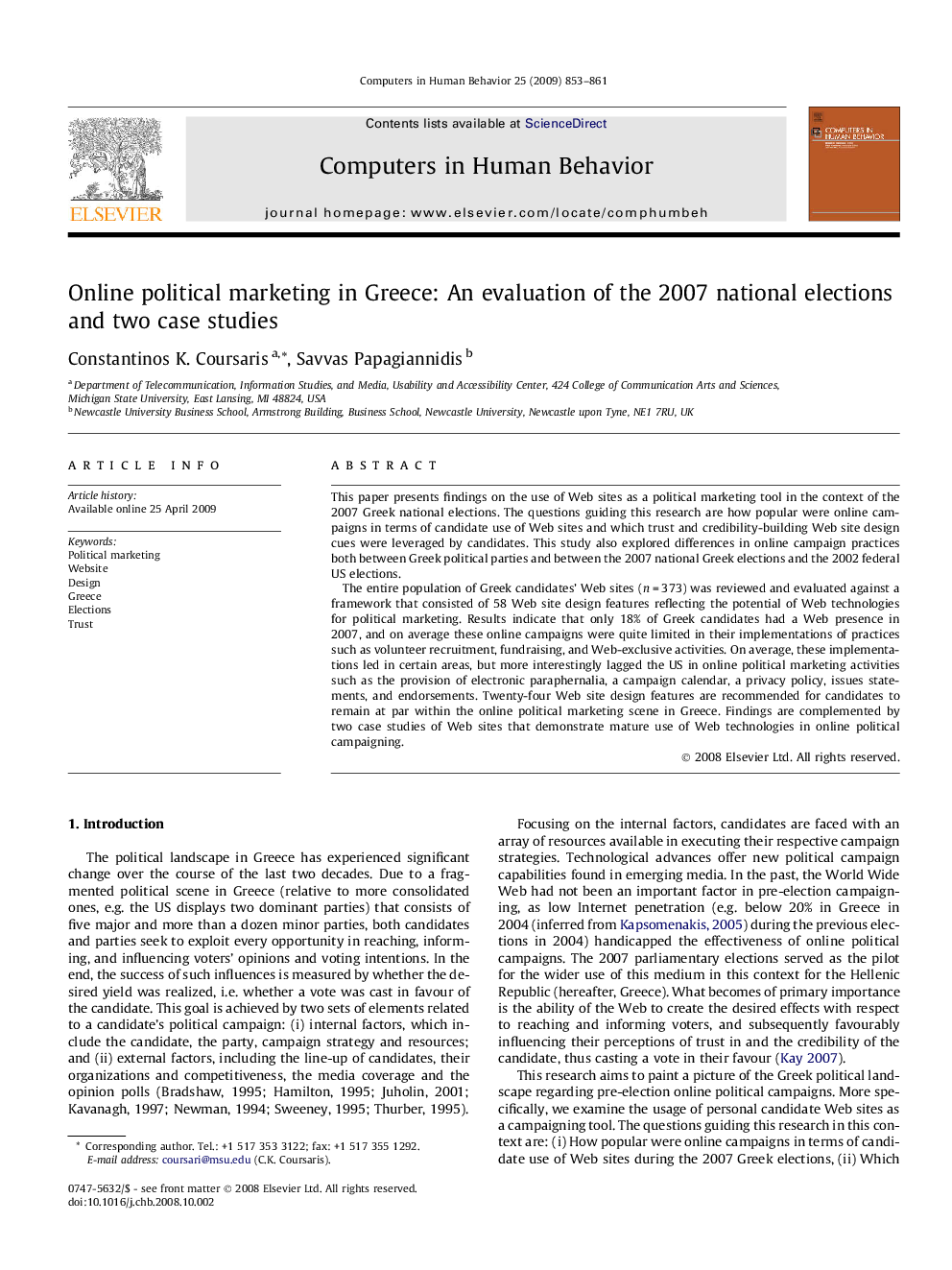| Article ID | Journal | Published Year | Pages | File Type |
|---|---|---|---|---|
| 352065 | Computers in Human Behavior | 2009 | 9 Pages |
This paper presents findings on the use of Web sites as a political marketing tool in the context of the 2007 Greek national elections. The questions guiding this research are how popular were online campaigns in terms of candidate use of Web sites and which trust and credibility-building Web site design cues were leveraged by candidates. This study also explored differences in online campaign practices both between Greek political parties and between the 2007 national Greek elections and the 2002 federal US elections.The entire population of Greek candidates’ Web sites (n = 373) was reviewed and evaluated against a framework that consisted of 58 Web site design features reflecting the potential of Web technologies for political marketing. Results indicate that only 18% of Greek candidates had a Web presence in 2007, and on average these online campaigns were quite limited in their implementations of practices such as volunteer recruitment, fundraising, and Web-exclusive activities. On average, these implementations led in certain areas, but more interestingly lagged the US in online political marketing activities such as the provision of electronic paraphernalia, a campaign calendar, a privacy policy, issues statements, and endorsements. Twenty-four Web site design features are recommended for candidates to remain at par within the online political marketing scene in Greece. Findings are complemented by two case studies of Web sites that demonstrate mature use of Web technologies in online political campaigning.
